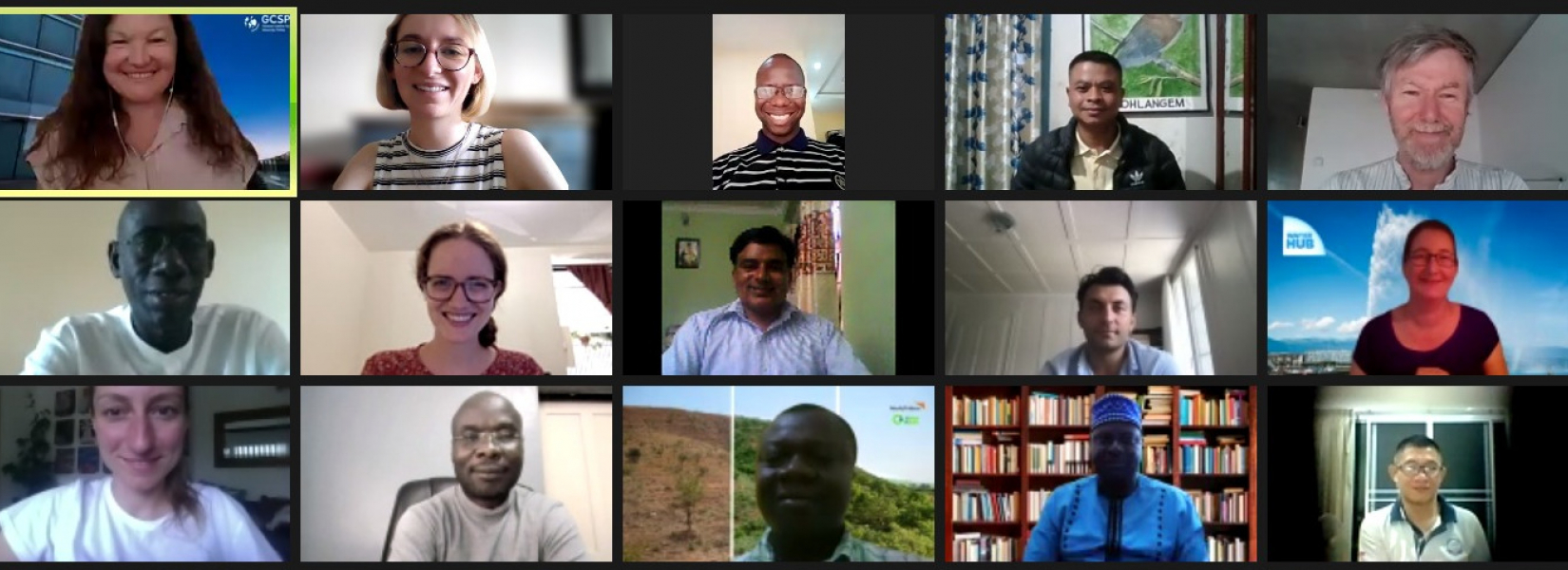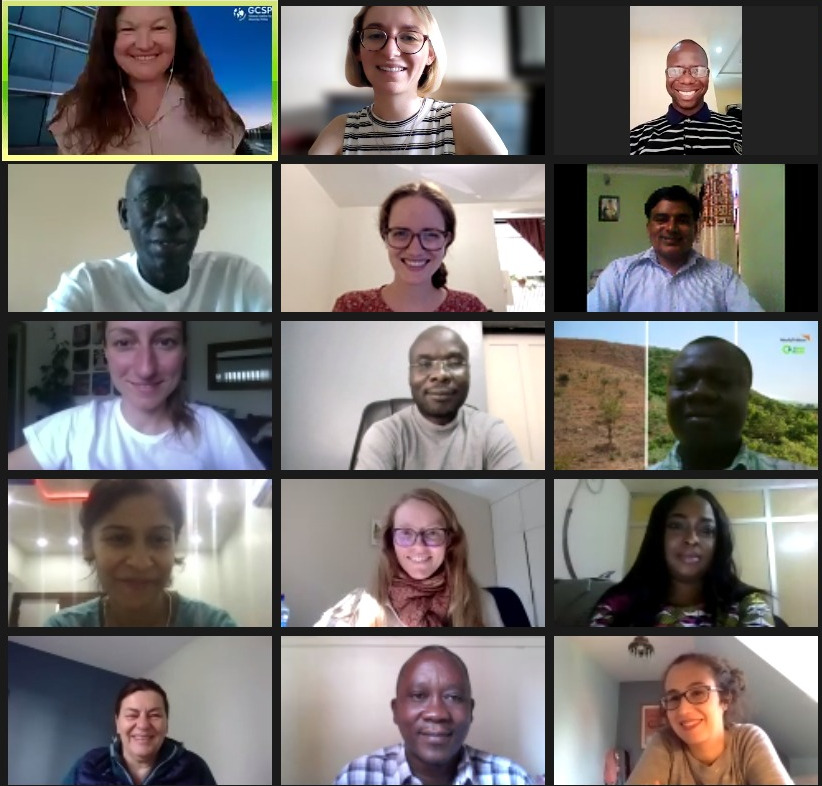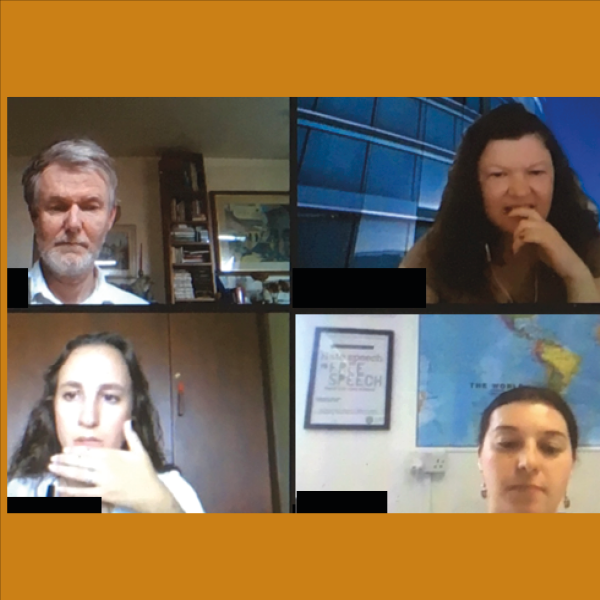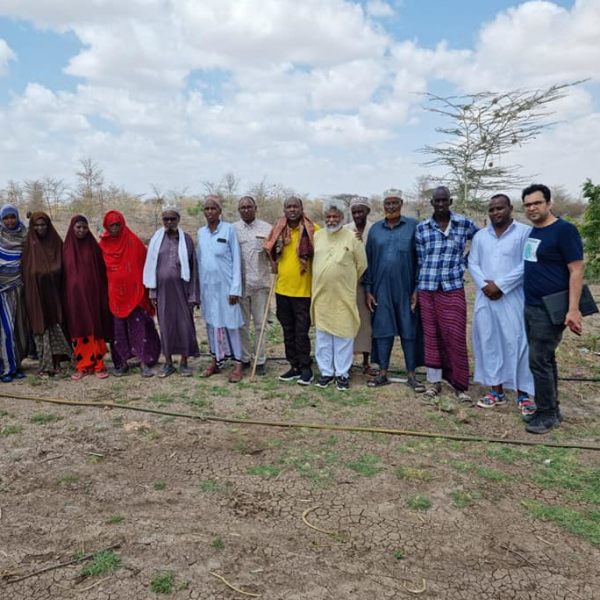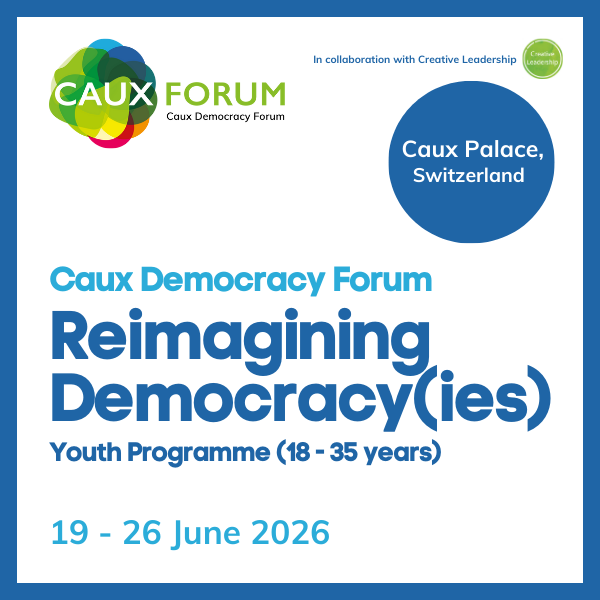Forging a network of problem-solvers to build a secure and sustainable future
Summer Academy on Climate, Land and Security 2021
18/08/2021By Alan Channer
The Summer Academy on Climate, Land and Security 2021 brought together 29 participants from 20 countries. From Egypt and Senegal to the United States and Thailand, zoom windows opened for six hours every day for five days during the last week of July. The course was co-organized and convened by Anna Brach, Head of Human Security at the Geneva Centre for Security Policy Dr Alan Channer, a peacebuilding and environment specialist with Initiatives of Change, and Louise Brown, Founding Director of Triple Capital in Namibia.
Watch the replay of the first plenary (26 July 2021)
The Summer Academy, which takes place within the framework of the annual Caux Dialogue on Environment and Security (CDES), was conceived in response to the threats to human security posed by the climate and environmental crises. It is based on the premise that both interdisciplinary solutions and collaboration across boundaries of discipline, sector and nation state are needed to respond to these crises.
The course provides an overview of core concepts in the fields of human security, sustainable land management, climate change and climate finance, and explores potential solutions at the nexus of conflict, land degradation and climate change. It consists of high-level webinars, case studies and intensive group work.
Running through each Summer Academy is a focus on the enabling factors that are often critical to the implementation of solutions on the ground – appropriate policy, effective governance, property rights, technology, access to finance, data, knowledge, transparency, local ownership, trust and collaboration. Both the core concepts and these ‘enablers’ were illustrated with case studies from the real world.
Second plenary (27 July 2021)
Aiban Swer, Director of the Meghalaya Basin Development Authority, and Bremley Lyngdoh, CEO of Worldview Impact, described how government and civil society in the North East Indian state of Meghalaya are endeavoring to assure the land rights of indigenous communities in the face of mining interests, climate change and insecurity.
Tom Duncan, CEO of Earthbanc, a digital banking platform for impact investment and green bonds, described how his company is pioneering methodologies to bridge ‘the last mile of climate finance’ and reward small-scale farmers in Meghalaya for implementing regenerative agriculture.
Hilma Angula, of the Namibian Association of Community-Based Natural Resource Management Support Organizations (NACSO), Johanna Hainaina, of the Environmental Investment Fund of Namibia, and Karine Nuulimba of Maliasili shared experiences of community-based natural resource management in Namibia, which have improved rural livelihoods and increased numbers of wildlife over large swathes of previously degraded land. They highlighted the benefits of devolving land rights, incentives and responsibilities to local communities, explained how good policies can empower local governance and discussed the role of climate finance in amplifying local solutions.
Dr Dhanasree Jayarman, Assistant Professor of the Manipal Academy of Higher Education in India, Dr Chad Briggs from the University of Alaska and Dr Serge Stroobants, Director for Europe and the MENA regions for the Institute of Economics and Peace, explored how climate and security interact in their regions, drawing out both differences and common principles.
Group work focused on generating interdisciplinary solutions to specific problems – for example, insecurity exacerbated by climate change in the Sahel, land degradation and farmer-pastoralist conflict in Nigeria, and seawater inundation in a small Pacific Island state. During the final group exercise, teams elaborated and pitched project proposals on solutions which they themselves had identified, based on what they had learnt during the week.
Each Summer Academy on Climate, Land and Security is the beginning of further exchanges, networking and potential collaboration. The Summer Academy alumni network now has 74 members. It embodies the will to work for a secure and sustainable future for humanity, based on shared values of dialogue, mutual respect and collaboration.
Summaries of the three high-level webinars, which featured global authorities on the subjects at hand, can be read here.
Final plenary (28 July 2021)
_______________________________________________________________________________________________________
What they said
'I had to get up at 4am every morning [in Bolivia]. I didn't think I could do it but the course and the participants gave me the energy.'
‘The course was comprehensive and interactive, combining learning and sharing.’
'It was like a miracle. I had been wanting to do a course just like this.'
_______________________________________________________________________________________________________
The Summer Academy on Climate, Land and Security 2021 was made possible through the generous support of the Africa Climate Change Fund of the African Development Bank, the Silvia Zuber Fund, in-kind support from the Geneva Centre for Security Policy (GCSP) and individual gifts.
- Discover more on the Summer Academy on Climate, Land and Security
- Find out more about the Caux Dialogue on Environment and Security
- Learn more about the Caux Forum Online 2021
- Find out more about our events and programmes
- All our videos on YouTube
